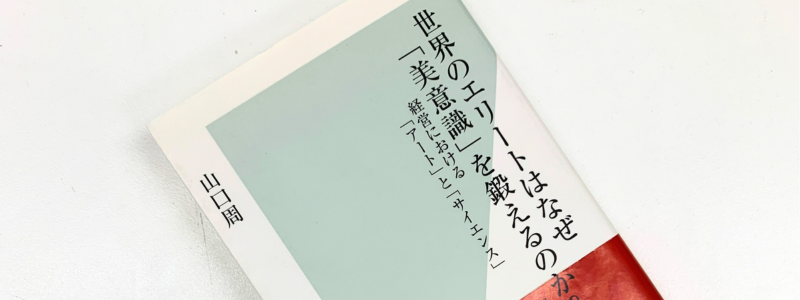I recently read a book released six years ago titled “Why Do the World’s Elite Train Their Aesthetic Sense?” by Shu Yamaguchi.
The author examines approaches to decision-making in management on the contrasting axes of “logic and intuition” and “reason and sensitivity.
In his book, he suggests that current management is skewed toward logic and reason, but that intuition and sensitivity are needed at the same level for long-term management.
It goes on to say that what is necessary in management is “truth, goodness, and beauty” = “aesthetic sense” within oneself.
The point is to have one’s own criteria to evaluate one’s life, and I thought this was impossible without a “self-axis” when I read the book.
I believe that it is difficult to embody the concepts of “truth, goodness, and beauty,” which are often mentioned in Kazuo Inamori’s books, unless one has two elements: one’s own axis of principles and the ability to look at these principles objectively.
This is because, as he wrote in his book, people make judgments and decisions with their minds, not their thoughts.
I also believe that intuition and sensitivity are the mainstay of the mind, so when taking action, people act on intuition and sensitivity, not on logic and reason, and in the end, acting on logic and reason will not be interesting or enjoyable and will not last long.
In this regard, it is a prerequisite that one has a mental compass of one’s own axis.
The book I read this time is for people who are called managers or elites, so it is written on the assumption that they have their own axes to grind.
However, surprisingly, I believe that there are many executives and elites who need to start by regaining their sense of self before they can talk about aesthetics.
It is good to develop a sense of beauty, but in the end, I believe that people who lack a sense of self are driven by the atmosphere around them and their own self-interests, causing all sorts of problems.
In this light, I think it is better to think of things in three stages: first, to have one’s own axis or to have one’s own axis, then to have one’s own aesthetic sense of true, good, and beautiful, and then to look at things objectively and make judgments. I think it is better to think in three stages.


